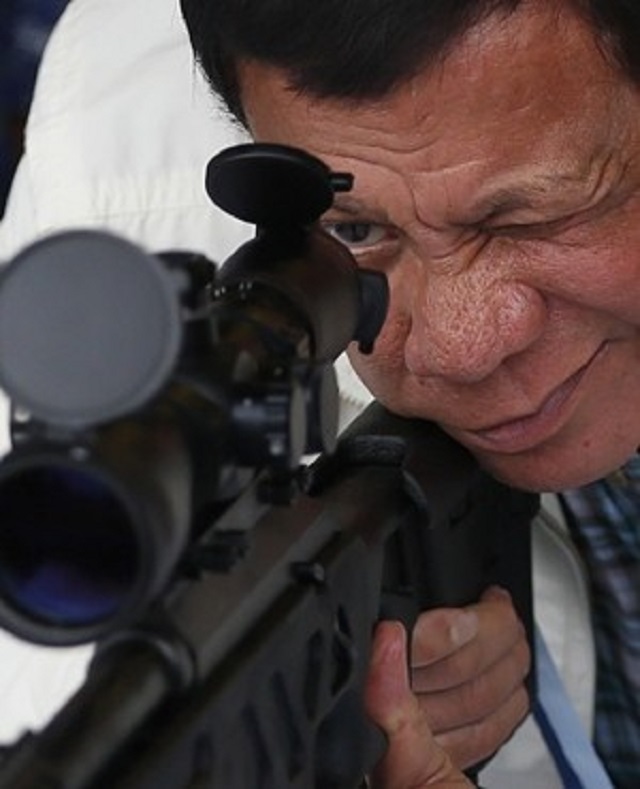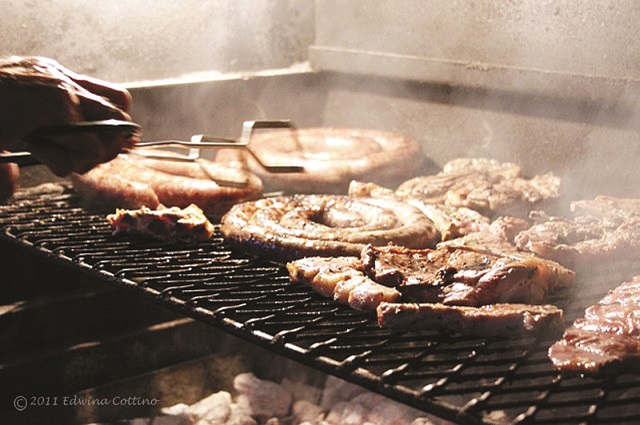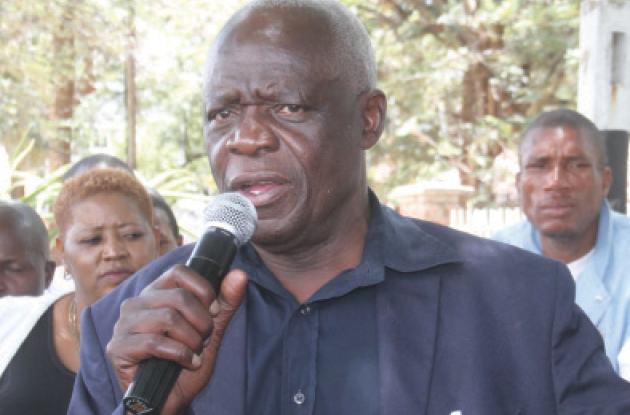Philippine president says his son will be killed if involved in drugs

Manila — Philippine President Rodrigo Duterte has said he will have his son killed if drug trafficking allegations against the younger politician are true, and that the police who carry out the hit will be protected from prosecution.
Paolo Duterte (42), this month appeared before a senate inquiry to deny accusations made by an opposition lawmaker that he was a member of a Chinese triad who helped smuggle in a huge shipment of crystal methamphetamine from China.
President Duterte did not refer to the allegations specifically, but reiterated his statement from last year’s election campaign that none of his children were involved in drugs, but they would face the harshest punishment if they were.
“I said before my order was: ‘If I have children who are into drugs, kill them so people will not have anything to say’,” Duterte said in a speech on Wednesday night before government workers at the presidential palace in Manila.
“So I told Pulong (Paolo’s nickname): ‘My order is to kill you if you are caught. And I will protect the police who kill you, if it is true’,” he said.
Duterte (72), won the presidential elections on a brutal law-and-order platform in which he promised an unprecedented campaign to eradicate illegal drugs in society by killing up to 100 000 traffickers and addicts.
Since he assumed office in the middle of last year, police have reported killing more than 3 800 people in anti-drug operations while thousands of others have been murdered in unexplained circumstances.
Duterte has as president said he would be “happy to slaughter” three million drug addicts, and described children shot dead in the drug war as “collateral damage”.
But he has also repeatedly insisted he has never instructed police to do anything illegal, and that they must only kill in self-defence.
Duterte’s aides have cautioned journalists not to believe everything the president says, sometimes describing his comments as “merely rhetoric” or “hyperbole”.
Some opposition lawmakers and other Duterte critics allege he and his family have long been involved in corrupt activities dating back to the president’s two-decade reign as mayor of the southern city of Davao.
Duterte denies all allegations of corruption, and insists he is an anti-graft crusader who lives a humble lifestyle.
In this month’s senate hearing, the opposition lawmaker said Paolo Duterte, who is vice mayor of Davao, and the president’s son-in-law were involved in a criminal syndicate called the “Davao Group”.
The pair denied any wrongdoing.
Meanwhile, Thousands of people have protested in the Philippines on the 45th anniversary of the declaration of martial law in the country, while denouncing what they say are Duterte’s authoritarian tendencies and his bloody crackdown on illegal drugs.
Hundreds of riot police yesterday were deployed in the capital, Manila, to secure the marches and rallies, among the largest against Duterte since he took office last year.
A group calling itself a “Movement Against Tyranny” used the anniversary to highlight human rights violations under Duterte’s so-called drug war on drugs.
According to police statistics, more than 3 000 suspects have been killed in anti-drug operations since Duterte became president on June 30, 2016.
Waving red flags and carrying placards that read “Stop the killings”, left-wing groups gathered in three areas of Manila, including a bridge leading to the presidential palace. They assembled later at a park by Manila Bay for the main protest.
Another group of protesters staged a separate rally at the Commission on Human Rights, which has been repeatedly denounced by Duterte for raising an alarm over his campaign against illegal drugs.
“Marcos, Duterte, no different, they both kill,” the activists chanted, referring to the late leader Ferdinand Marcos who imposed military dictatorship for eight years in 1972, citing the threat of communism.
Marcos’ martial law era, which ended in 1981, was marked by massive human rights violations and the muzzling of civil liberties.
Jamela Alindogan, reporting from the protest in Manila, said that survivors of the martial law period draw a lot of similarities between former president Marcos and the current rule of Duterte.
“The protesters are asking the president to stop his so-called war on drugs and instead focus on institutional reform, especially when it comes to the Philippine national police and the judiciary,” she said.
Duterte declared yesterday as a National Day of Protest to allow people “to express their grievances as part of their constitutional rights” as he suspended work in government offices and classes in public schools.
But he warned protesters not to break the law.
“I will not hesitate to use force even if it would mean my downfall as president of this country, remember that,” Duterte said on Friday on state TV.
Several thousand demonstrators took the opportunity to gather separately to show their support for the president.
Duterte imposed military rule in the southern Mindanao region for 60 days on May 23 when hundreds of ISIL-linked fighters occupied parts of Marawi city.
The Philippines Congress approved in July Duterte’s request to extend martial law in the southern island until the end of the year.
Duterte has also threatened to impose a nationwide martial law to combat the threat from fighters in the south.
Last week, Defence Secretary Delfin Lorenzana said Duterte may expand martial law in the southern Philippines to the entire country if the September 21 rallies turn violent.
But, yesterday, Presidential spokesman Ernesto Abella tried to allay those fears.
“If they are saying that martial law is being planned, it is not so,” he said in a radio interview.— Al Jazeera











Comments